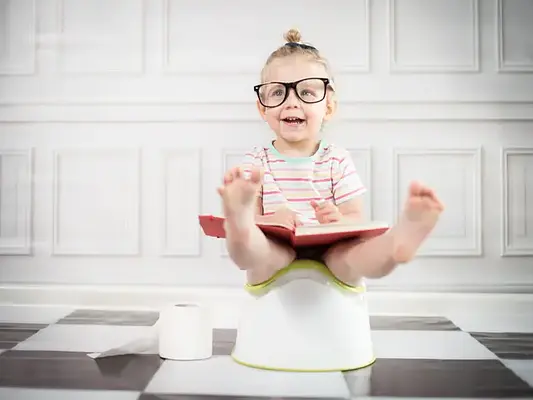Starting to potty train your child is an exciting milestone. It helps your child become more independent, reduces household friction, frustration, and work for the parents, and is an important part of growing up. Not only that, when your child is potty trained, you’ll spend less money on diapers and wipes and more time helping your child learn other important life development skills.
Learning to use the potty on their own is an enormous moment of personal growth for your child, and the journey to that accomplishment will strengthen the bonds between your whole family. Here are five simple potty training tips to try today to get started on that journey!
1. Plan Ahead
Before we get into what planning ahead means as you potty train your child, it is first important to say that every child is different, and there is no “right” time to start potty training. Some people praise the benefits of early potty training, while others recommend waiting until your child is ready to start the process. This is a decision that must be made between you and your family, and luckily there are endless resources to help guide you.
Once you know the time is right, planning ahead will help you find the time and supplies you need to start potty training consistently. Additionally, it is safe to assume that even if you don’t know exactly when, there will come a time that your child is ready to be potty trained. Start watching for cues that they might be ready, do research to help prepare, and make a list of the materials you will need so that the moment you and your child are ready to start potty training, you can get right to work.
2. Get the Right Materials
Potty training requires many materials you will need in advance. A potty chair or toilet seat reducer will give your child space to practice their potty training endeavors. If you opt for a toilet seat reducer instead of a potty chair, you might need a little step stool or ladder to help your child get on and off the toilet.
Many people recommend stocking up on flushable wipes because they feel similar to the wipes used when changing diapers and help with a quicker clean up. You should also set your child up for success by getting them clothing and undergarments that are easy to get on and off on their own.
Potty training underpants will help your child with the transition from diapers to underwear. Of course, you’ll want cleaning supplies and lots of hand soap to keep the practice area clean and teach your child hygiene. Last but not least, be sure to get materials that make potty training special and celebrate your child’s progress, especially rewards.
Whether you are gearing up to start potty training or are deep in the process, evaluate what you need and get materials that will make potty training as easy as possible.
3. Have a Good Attitude
Having a good attitude is one of the best things you can do to make potty training fun, simple, and successful. Set realistic expectations and remember that there will be days when your child completely misses the toilet or has an accident or that potty training does not go as planned.
Try to laugh the entire way through and keep a positive attitude. Sometimes, this means you might have to take a few moments, check-in with yourself, and give yourself a quick pep talk to get back in the right headspace. Some parents say they potty trained their child in one weekend, while others say it took a year. Either way is completely fine and completely natural, so if it seems like training is taking a while, don’t worry. Your child is a work in progress on the way to becoming a masterpiece.
4. Put Yourself in Your Child’s Mind
As you potty train your child, try to keep in mind that the experience is completely new to them and might feel different or scary. Your child might not understand why using a toilet is even necessary since they’ve spent their whole life in diapers.
One way to make potty training seem more fun and help your child understand why potty training is important is to talk openly about the positives of using the toilet on their own. Let them know what a big kid they are or that using the potty is fun. However, your child is still a child, and there will be many times before, during, and after potty training that they fail to use the toilet on their own, so be careful not to talk down about using diapers, having accidents, or anything else that might damage your child’s self-esteem or self-confidence.
Finally, because potty training will be a new experience, develop some consistent potty training routines and practices to help make the goal as achievable as possible.
5. Celebrate All Victories, Big and Small
Potty training is hard work, and that hard work deserves celebration and rewards at all stages of the process. Many parents use rewards to help their child understand that they are doing well and that they should always try their best to use the toilet. To make potty training simpler, try rewarding your child every time they use the toilet. You can even give partial rewards if your child tries but doesn’t quite succeed, or more rewards if your child goes above and beyond, flushing, remembering to wash their hands, or anything else important to their bathroom independence.
It might take some trial and error to figure out what the right reward for your child is. Some parents use candy, while others use toys or special activities. The reward can and should be as unique as your child. Above all else, let your child know what a good job they are doing and how proud you are.
They are taking a big step as part of a long process that will have both moments of great progress and moments of regression. Give your child love, support, and praise the whole way through.






